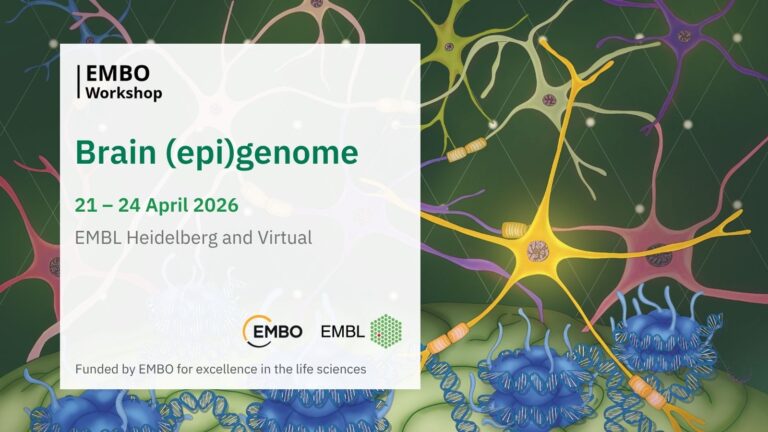Brain (epi)genome
Media Partnership
between Biobreeding and Brain (epi)genome

Conference overview
The brain’s remarkable cellular diversity — encompassing hundreds of distinct neuronal and glial cell types — emerges from a single genome through sophisticated regulatory mechanisms. This EMBO Workshop brings together leaders in genomics, neuroscience, and epigenetics to advance our understanding of how the (epi)genome achieves this diversity, shaping brain function and behaviour.
Recent technological breakthroughs in single-cell, spatial, and 3D genomics and epigenomics are revealing unprecedented insights into the molecular logic behind neural diversity as well as neuronal connectivity and function. But there is much we do not understand, especially when trying to link these molecular and cellular processes to higher brain functions such as memory and behavior, or to disrupted brain states in aging and disease. Progress in these directions will require studies in human cells with traditional and emerging model organisms, all of which will be featured in this workshop.
Key questions at the cutting edge of the field will be explored, such as: how does three-dimensional chromatin architecture orchestrate cell-type-specific gene expression? What (epi)genomic processes govern the establishment and maintenance of neuronal identity and connectivity? How do activity-dependent changes in transcription and chromatin contribute to synaptic plasticity and memory? How might the dysregulation of these processes underlie neurodevelopmental and neurological disorders?
By bridging genomics, neuroscience, and epigenetics, this conference aims to stimulate new ideas on how the (epi)genome orchestrates brain function and to solidify the growing scientific community that sees the intersection of these three disciplines as fundamental to our understanding of the brain.
Session topics
- Epigenetic basis of neural diversity
- Chromatin and neurodevelopment
- Gene regulation in stress and memory
- (Epi)genomics of brain plasticity and behaviour
- Ageing and neurological disorders
- Single-cell, spatial, and 3D genomics in the brain
More details:
https://www.embl.org/about/info/course-and-conference-office/events/BRG26-01/?utm_source=Sciepublish&utm_medium=mpreferral&utm_id=BRG26-01\